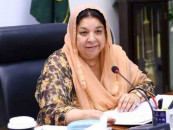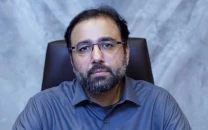Attack on academic freedom: Controversial Universities Bill challenged in SHC
Pasban-e-Pakistan file petition through president Altaf Shakoor

PHOTO: FILE
A civil rights group, Pasban-e-Pakistan, challenged it by filing a petition through its president, Altaf Shakoor.
In the plea, the petitioner said that the Pakistan Peoples Party-led government had got the bill passed on the basis of its numbers in the Sindh Assembly on March 10.
He argued that the passage of the bill was illegal and unconstitutional as the House's quorum was not complete due to a walkout by the opposition lawmakers and only 28 members were present.
He recalled that former prime minister Zulfikar Ali Bhutto had empowered the governor to control public sector universities and boards under the Universities of Sindh Act, 1972.
He termed this move of the Sindh Assembly as revolt against the federal control over public universities in the province and apprehended that it would close the door for acquiring higher education on the public and promoting corruption.
Sindh Universities Law Amendment Act
The petitioner argued that the educational institutes should not be allowed to be politicised as it would adversely affect the standards of higher education. He argued that the universities all over the world function independently under the control of highly qualified academics and scholars.
The petitioner mentioned that the federal anti-graft watchdog and other investigating agencies were already investigating corruption scandals involving billions of rupees in different government departments, including the universities in Karachi, Khairpur, Nawabshah and other cities.
Shakoor alleged that the provincial government was misusing its power and jurisdiction in the education sector. He apprehended that such a move would result in the downfall of educational standards in the province.
Controversial University Law draws teachers’ ire
A two-judge bench, headed by Justice Aqeel Ahmed Abbasi, is likely to take up the plea for hearing today (Wednesday).



















COMMENTS
Comments are moderated and generally will be posted if they are on-topic and not abusive.
For more information, please see our Comments FAQ